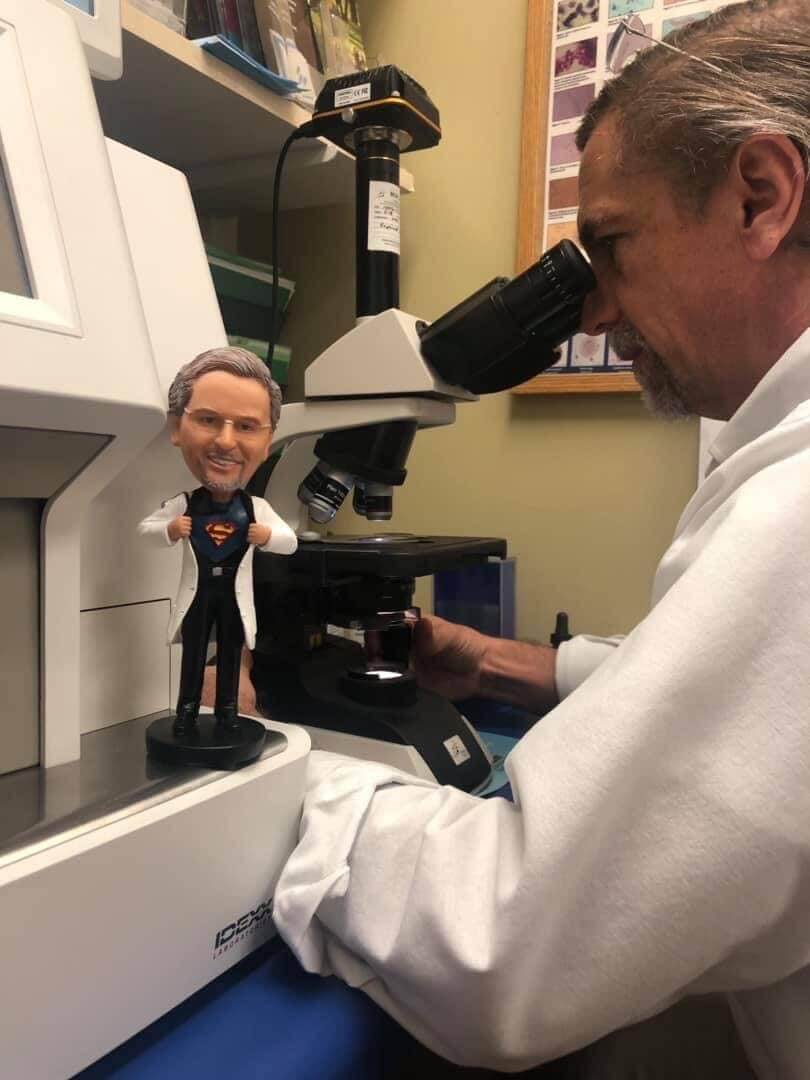There is so much that can be learned from a simple blood sample, especially when the information is available quickly. Advanced Animal Care's state-of-the-art diagnostic lab machines from Idexx can be used for sick patients who need results as soon as possible. We provide an array of in-house diagnostic tools to help find the answers and get your furry loved one feeling better quickly.

BLOOD CHEMISTRIES
Our laboratory is able to quickly assess the health of your pet’s major organs including the liver, kidney, and pancreas. These common blood tests allow our veterinarians to assess your pet’s overall health.
BLOOD ELECTROLYTES (SODIUM, POTASSIUM, CHLORIDE)
Many disease conditions result in electrolyte disturbances, a situation that can have far-reaching effects on a body’s ability to function. In some cases, such as an obstructed bladder and the inability to pass urine, it is the electrolyte disturbance that presents the life-threatening emergency. Evaluating your pet’s electrolyte levels may help flag a diagnosis, and in most cases, correcting an imbalance can help your pet feel better and recover quicker.
COMPLETE BLOOD COUNT (CBC)
A CBC gives us numbers regarding your pet’s red and white blood cells as well as platelets. These numbers can then be interpreted to reveal the presence of inflammation, anemia, certain parasitic infections, or even certain cancers.
URINALYSIS
A urinalysis is performed on a urine sample and provides insight into kidney functions as well as the hydration status of your pet. This test may also be helpful in diagnosing and monitoring various diseases and metabolic disturbances in the body. While collecting a sample outside or at home may be adequate in some cases, other patients may need a cystocentesis in order to obtain a urine sample. This is performed in the hospital via ultrasound and is necessary when sending out urine cultures to evaluate an infection or to obtain the most accurate results. This simple procedure, similar to amniocentesis in pregnant women, involves the passing of a tiny needle into the bladder from outside the abdomen. Thankfully, most pets tolerate cystocentesis very well.
OUTSIDE REFERENCE LABS
Although we have a diverse diagnostic toolbox available in the clinic, sometimes your pet may require more advanced laboratory testing to confirm a diagnosis, monitor therapeutic drug levels, or further investigate a systemic illness. These specific tests are known as ‘Reference Labs’ in which we send out the samples to a specific laboratory. We work closely with many outside labs and veterinary universities such as Texas A&M, Michigan State, and the University of Tennessee among others, to make sure our patients receive the highest standard of care.
